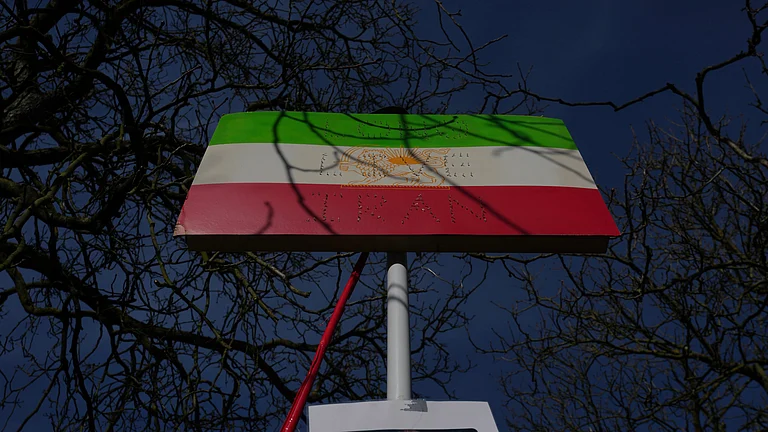This is the first time that India is holding the presidency of the G 20. The manner in which the presidency is celebrated and implemented all across the country makes the G-20 presidency akin to a festival of India. This raises the perception of the G-20 in India and overseas.
India's celebratory approach to the G-20 is different from the way presidencies earlier handled their responsibilities, in a staid manner. India moved to make the G-20 process, internally and globally, more inclusive, responsive, and celebratory. What would be the major positive outcomes for India once the G-20 summit is over?
Undoubtedly, India's rising stature particularly among the Global South is reinforced. India has been a partner of Africa, ASEAN, the Pacific islands, the Caribbean, and Central Asia, among others, with successful development cooperation efforts. These will undoubtedly continue. What is now attained through the G-20 presidency is an inclusion of the Global South into its priority setting. Through the Voice of the Global South virtual summit in January 2023, India consulted 125 countries that are normally left out of the process. Besides, countries from the Global South dominate the list of India’s Guests at the G20. Thus, bringing the priorities of the Global South and becoming their main articulator is a major achievement of India's presidency.
Africa has been often the subject of G-20 discussions but is rarely allowed to be a part of the G-20 decision-making. Other presidencies have taken African initiatives, but perhaps none as vocal as India. India's initiative to ask the G-20 members to agree to invite the African Union as a permanent member of the G-20 is unprecedented. No presidency ever tried to alter the membership, mostly for fear of opening the floodgates. India positioned itself as a champion of Africa so that much of the Global South and Africa, with which the G 20 agenda is concerned, should be at the table to discuss it. It is for the first time that the AU would find a permanent place at the high table in the international order and cease to be only a guest. South Africa is the only African country on the G-20 but it does not represent Africa as a whole.
India worked hard to insulate the G-20 from the vagaries of big power rivalry, in particular saving the G-20 from the Ukraine crisis. While it is still unclear whether a communique of the G-20 will be issued, India is ready for a Chairs Summary which is agreeable to all, in almost all the substantive paragraphs except those relating to Ukraine. This is important because if the G-20 agenda must focus on the articulation of Global South concerns, then each of the agenda items needs to be pursued diligently keeping those priorities in mind. From the deliberations of ministerial and other working groups, it is clear that India has robustly positioned the agenda for development, climate, health, SDGs, and new economic aspects well. This agenda in some ways is a continuity, but in many ways, it brought a focus upon ideas that the Ukraine crisis threatened to derail.
While talking to a large number of people from the business arena, it becomes evident that the spread of the G-20 across nearly 60 Indian cities brought a wave of fresh economic activity into them. Tourism and hospitality have boomed, infrastructure refurbished, and airports rejuvenated. While it may be said that this is only for the G-20 events, but its impact will be more long-lasting. Those sectors of the economy directly impacted by the influx of G-20 delegates believe that the momentum that they have brought will remain for a further two seasons at least. While that may need renewal, India's position as the leader of the G-20 which brought the Global South into firm focus is perhaps one of India's biggest diplomatic achievements in the current phase of altering international realities.
In the global scenario now, there is a requirement for a multipolar order not only strategically, but also as an expanded number of centres of growth and varied supply chains. A better protection of globalization and a more equitable distribution of its benefits is imperative. Remunerative value for natural resources in the Global South will help to empower them to attain the SDGs better.
In this, the reform of the multilateral development banks, better availability of local currency-funded instruments, and diverse and alternative supply chains that are not concentrated in unreliable partners become important. The Indian G-20 presidency has shown that such resilience in thought needs to be matched by resilient action. Greater coherence in responding to the requirements of the Global South, rather than merely leaving them as victims of big power rivalry is required The Indian G20 Presidency has worked toward such resilience and coherence.
It would have been fitting if India was able to work with the other emerging countries who are chairing G20 in a row: Indonesia, Brazil, and South Africa and perhaps set up a modest fund to support the SDGs in the Global South. Such a self-help fund would have shown both China and the G7 that their funding was important, but was not the only source of finance that the Global South could depend on.
The rising stature of India as positioned and perceived, makes it a probable partner and node of the emerging multipolarity. This will impact India well, as a country of influence as well as a stronger node of sustainable growth with fresh investments in new economic ideas as well as in emerging value chains.
(The writer is a former Ambassador to Germany, Indonesia, Ethiopia, ASEAN and the African Union.)



























